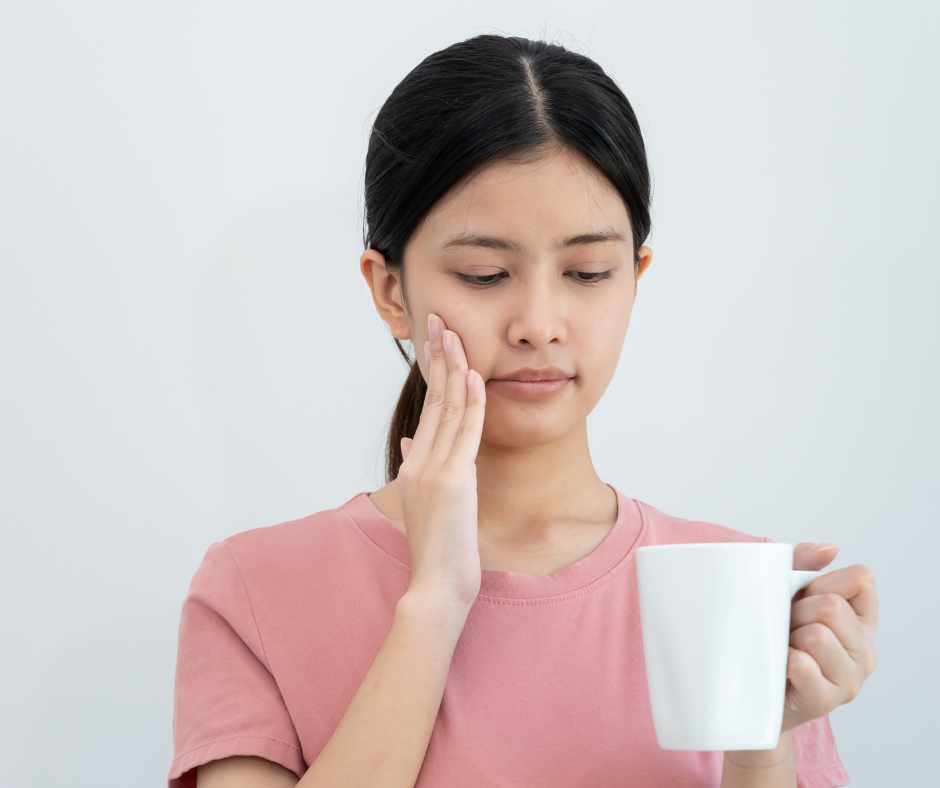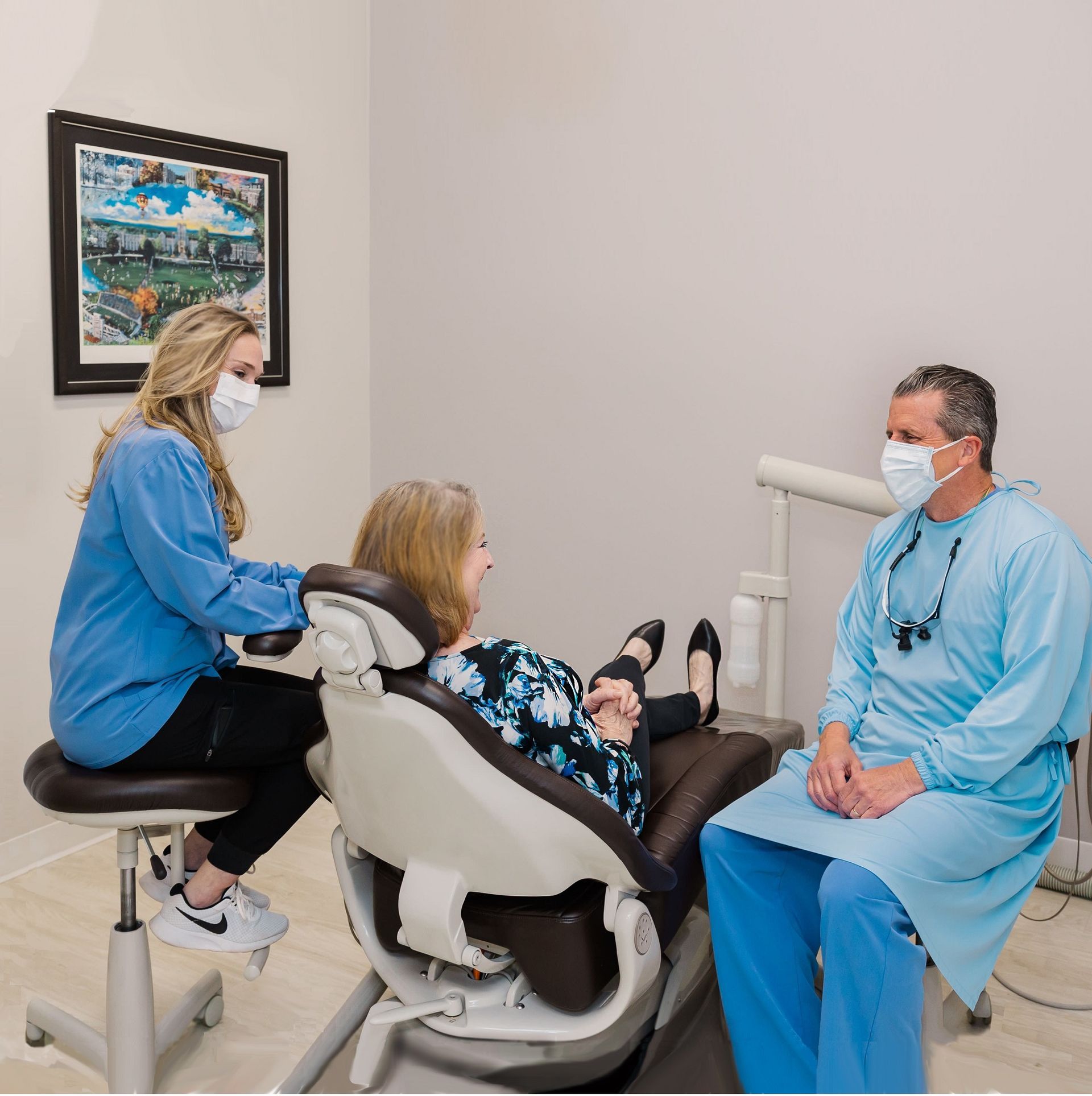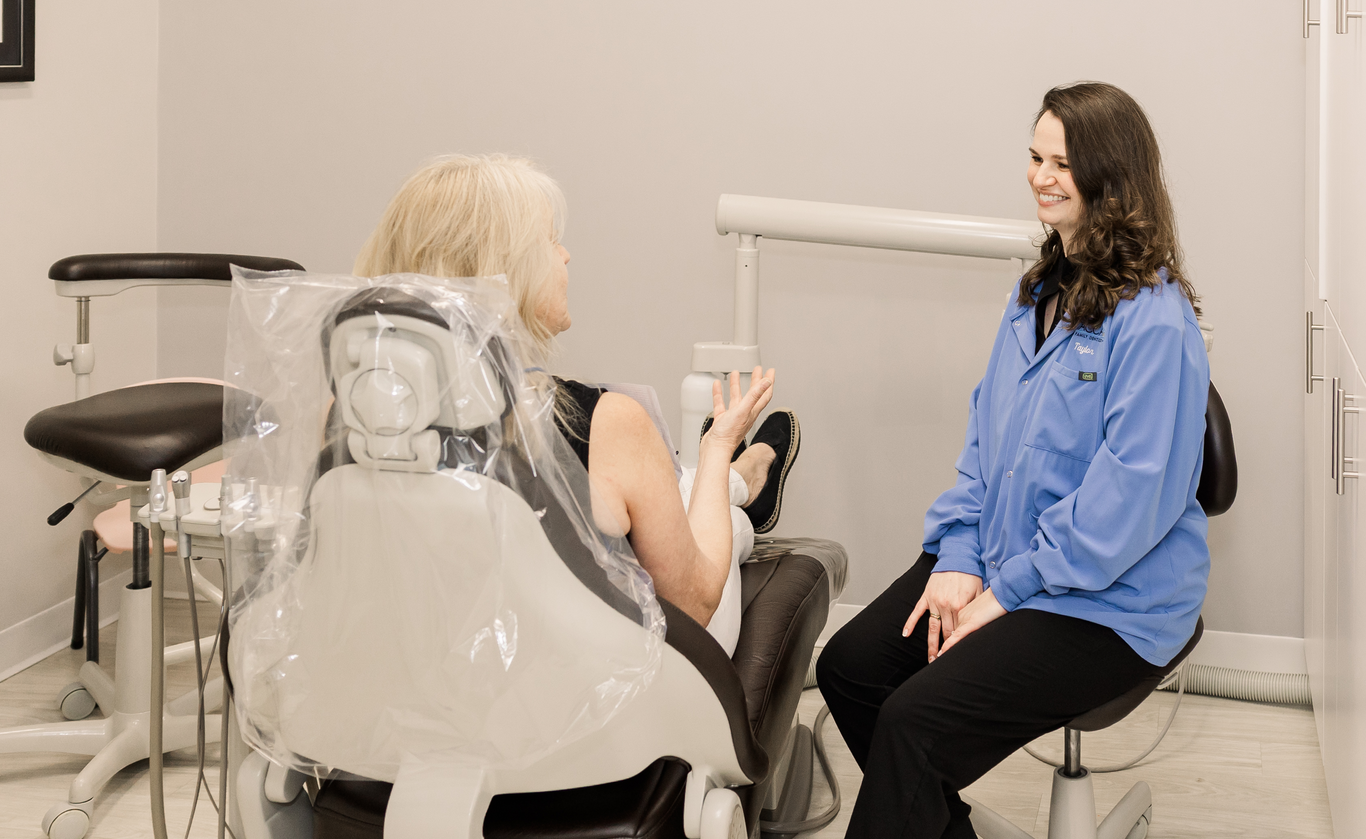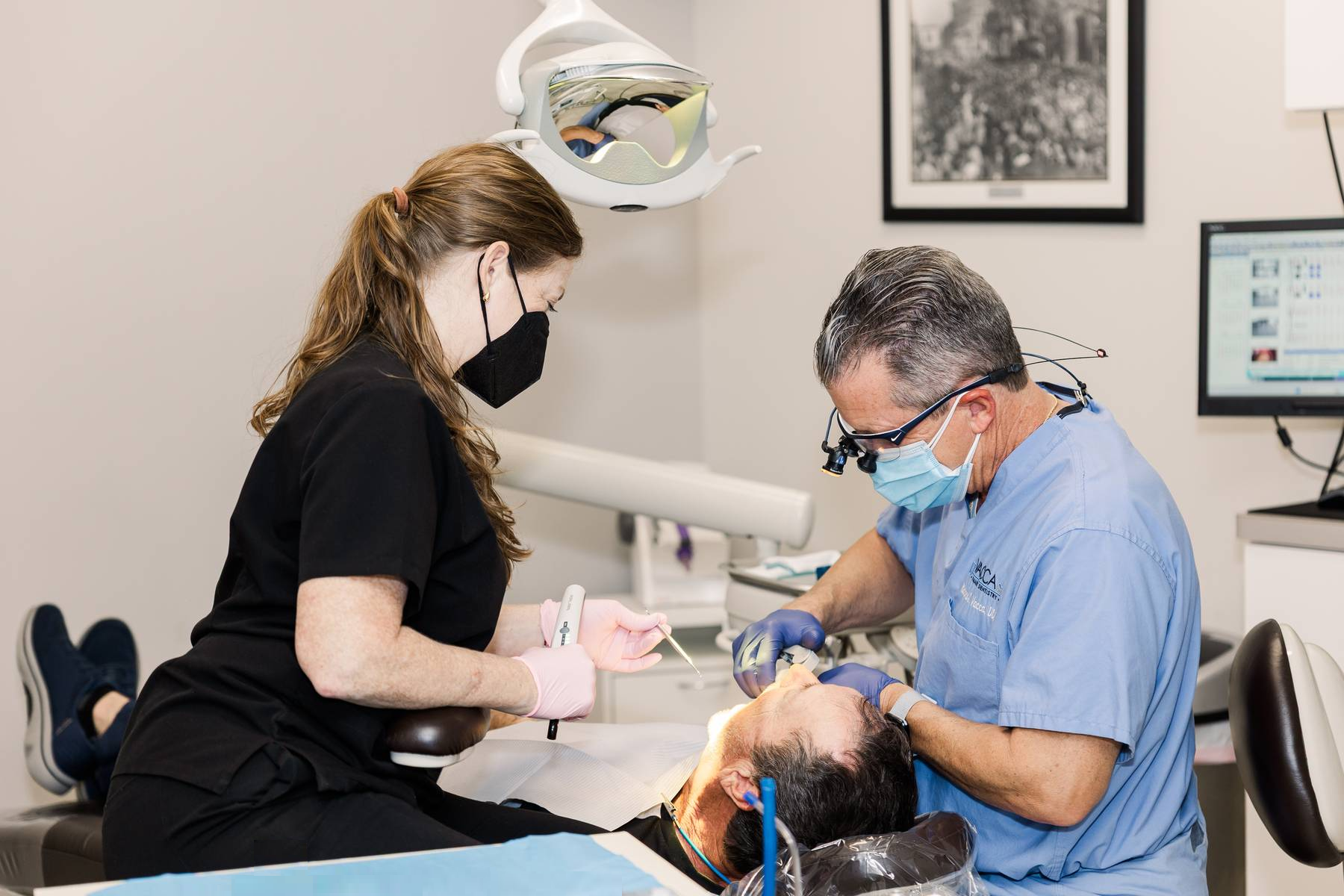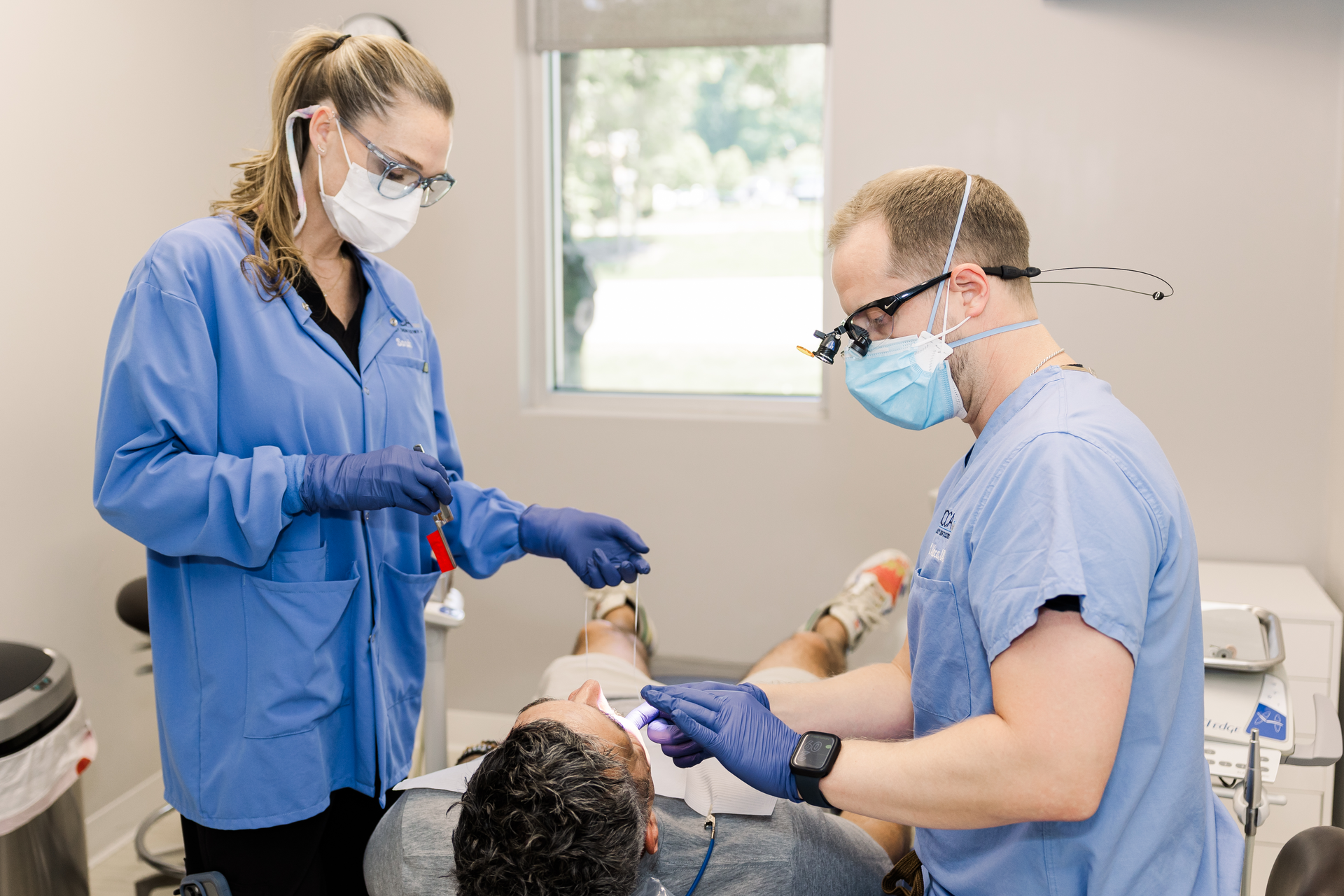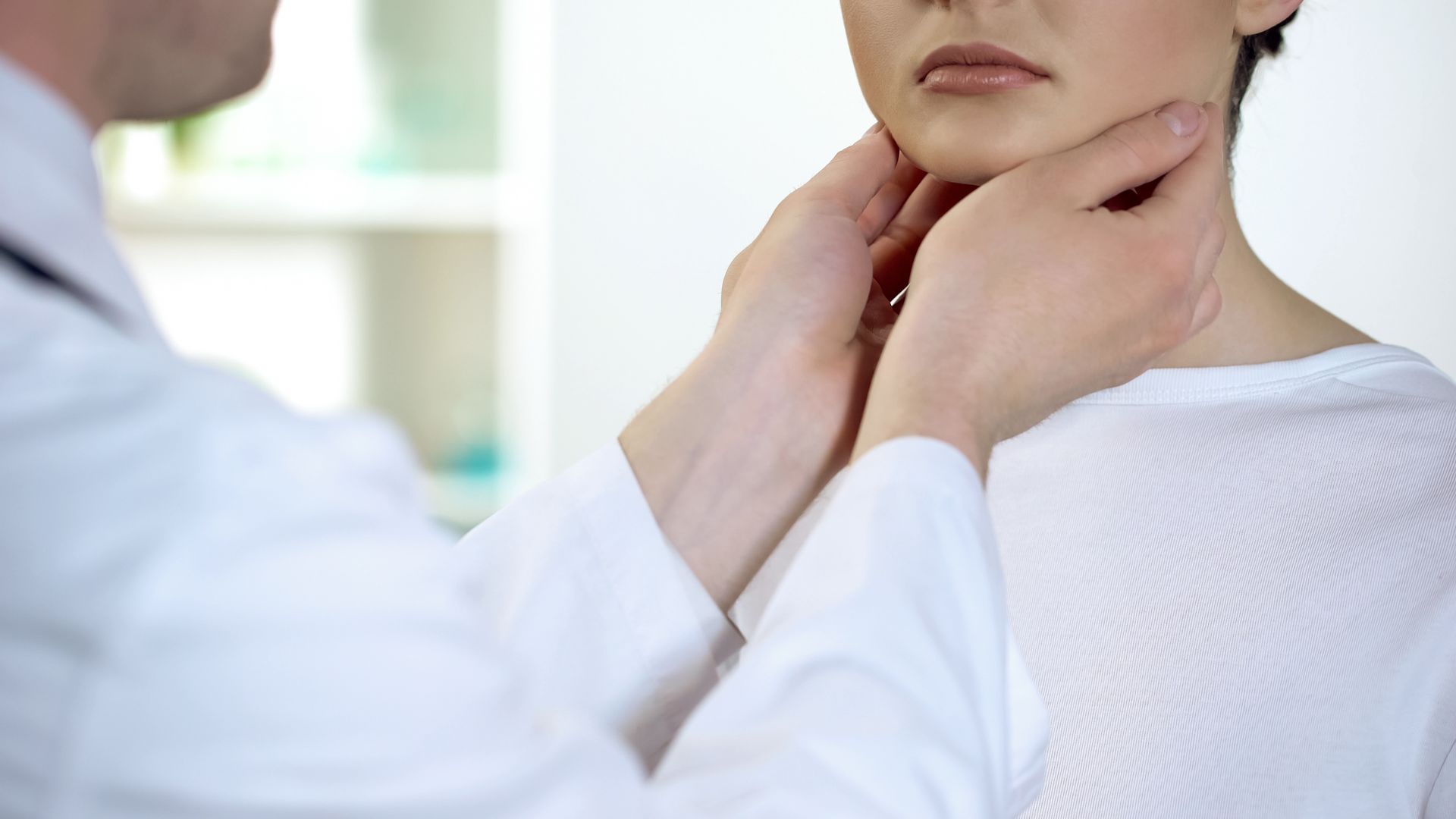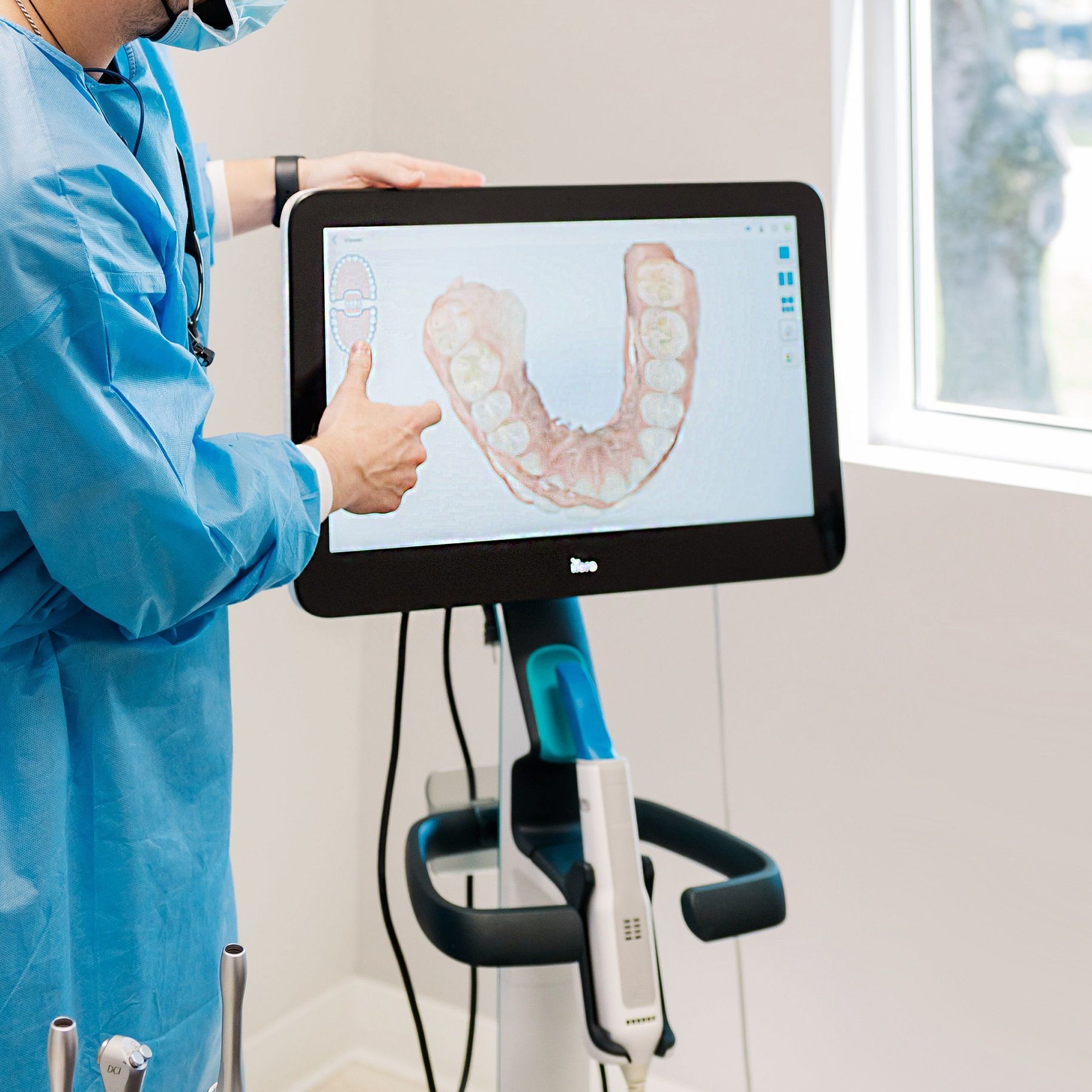Are You Grinding Your Teeth? How Stress, Sleep, and Bruxism Affect Your Smile
Stress levels and lifestyle changes over the past several years—especially since the COVID pandemic—have impacted our overall health, including our teeth.
Grinding Teeth Has Become More Common
Do you find yourself clenching your jaw or grinding your teeth during the day or night? Do you wake up with sore or tight jaw muscles or headaches? Have you been told by your dentist or hygienist that you show signs of teeth grinding?
If you answered yes to any of these questions, don’t worry—we can help. The key to managing teeth grinding (also called bruxism) is to catch it early and treat symptoms before serious damage occurs.
What Is Bruxism and Why Does It Happen?
Bruxism occurs in over three million people annually in the United States—and these numbers have likely risen since the pandemic. It happens when the brain signals the jaw muscles to contract, causing teeth to come together forcefully. This can happen subconsciously, often due to stress or other factors.
Grinding often involves side-to-side or forward-back movements of the jaw, which can cause significant damage to your teeth.
Signs and Symptoms of Teeth Grinding
Common signs of bruxism include:
- Flattened, worn-down teeth
- Loss of tooth structure
- TMJ (jaw joint) pain, especially in the morning
- Facial pain or headaches
- Clicking, popping, or locking jaw
- Yellow or brown discoloration on biting surfaces
- Noticing yourself clenching during the day
If you notice these symptoms, it’s important to take action quickly.
The Connection Between Sleep Apnea and Teeth Grinding
One of the more serious causes of teeth grinding is Obstructive Sleep Apnea (OSA). During sleep, your airway can become blocked, causing your body to push your jaw forward to open it. This jaw movement with clenched teeth leads to grinding.
OSA can be life-threatening, so if you suspect sleep apnea, consult your physician or dentist promptly.
How Can Bruxism Be Treated?
Early detection is critical. When your dental team points out signs of wear, take it seriously to protect your enamel—the hard, protective outer layer of your teeth—which, once lost, cannot be replaced. The most effective treatment for bruxism is wearing a custom night guard while you sleep. This device fits comfortably over your teeth and protects them from the damage caused by grinding.
Ask your dentist or hygienist at your next visit if you qualify for a night guard.
How do we Treat Bruxism at Vacca Family Dentistry?
At Vacca Family Dentistry, we provide personalized treatment plans based on each individual's unique situation. Our goal is to protect and preserve the integrity of your smile, bite and the overall impact of your surrounding oral cavity and jaw. Our team will schedule a consultation with Dr. William Vacca or Dr. Richard Vacca for a complete and thorough evaluation and to answer all of your questions and concerns.
Whether you’re a current patient or looking for a new dental home, we welcome you to reach out. Contact us at (804) 739-9191, email us via our website, or stop by our office anytime.
Protect and preserve your smile—early action can make all the difference.
